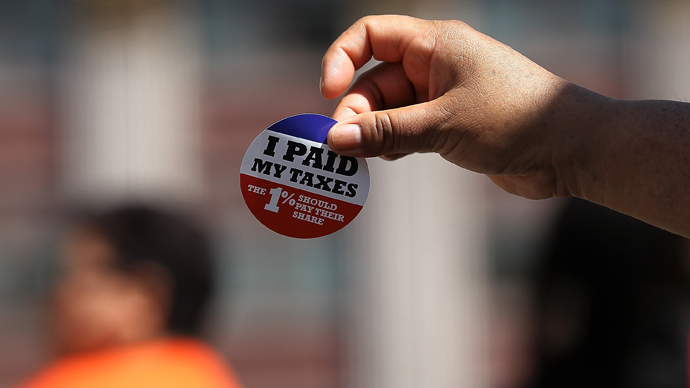Billions in tax breaks to expire at midnight

In a move that could potentially affect millions of American businesses and individuals alike, Congress is allowing billions of dollars in tax breaks to expire at the end of the year – and no one really knows why.
According to the Associated Press, Congress lets this set of 55 popular tax breaks expire almost every year, only to ultimately renew them retroactively so that Americans can still benefit when their tax returns are filed.
Since these policies were in effect for 2013, that means Congress has another year to renew the tax breaks for 2014. To those who see endless gridlock in Washington, though, there’s no guarantee that Democrats and Republicans will always get together to extend the benefits. If Congress decides to change the eligibility requirements for some breaks or outright cancels others, the move could have serious consequences.
"It's a totally ridiculous way to run our tax system," Rachelle Bernstein, vice president and tax counsel for the National Retail Federation, told the AP. "It's impossible to plan when every year this happens, but yet business has gotten used to that."
The expiring tax breaks range from those worth billions of dollars, like credits for companies investing in research and development, to smaller exemptions for teachers who purchase classroom supplies with their own cash. Still others benefit college students and those investing in renewable energy.
According to Rep. John Lewis (D-Georgia), who serves on the House of Representatives Ways and Means Committee in charge of tax policy, Congress’ inability to routinely extend these tax breaks is a “shameful” situation.
"It's not fair, it's very hard, it's very difficult for a business person, a company, to plan, not just for the short term but to do long-term planning," he said to the AP.
Even when Congress does renew the breaks, it’s only for a year or two at a time. Some believe lawmakers are wary when it comes to authorizing long-term extensions because making them permanent could add $400 billion or more to the country’s budget deficit. Others, however, see more suspicious politicking at play.
"More cynically, some people say, if you just put it in for a year or two, then that keeps the lobbyists having to come back and wine-and-dine the congressmen to get it extended again, and maybe make some campaign contributions," said Mark Luscombe, principal tax analyst for CCH, an Illinois-based consulting firm.
As lawmakers debate an extension, attempts to fold the debate into a larger conversation involving comprehensive tax reform are struggling to gain traction. Negotiations between the House and Senate have centered on reducing tax breaks and using the revenue generated to then lower tax rates across the board. Barring some sort of breakthrough, however, businesses and individuals could simply find themselves waiting to see if Congress comes through at the last minute – again.














